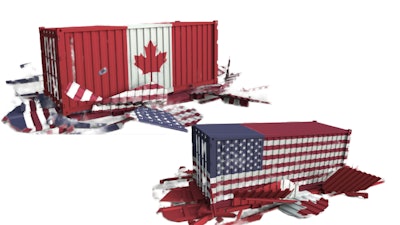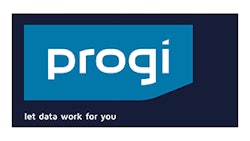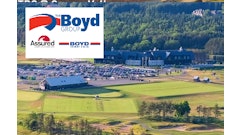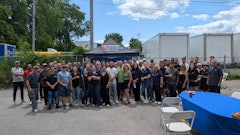
Ottawa, Ontario — United States President Donald Trump announced an additional 25 percent tariff on Canadian steel and aluminum, bringing the total tariffs on the products to 50 percent on Tuesday.
Update: White House advisor Peter Navarro told several news outlets that Trump would not impose the additional 25 percent tariffs on Wednesday, March 12. The President later confirmed this, following a "conversation with U.S. Commerce Secretary Howard Lutnick," according to CNBC.
President Trump's Tuesday retaliation occurred due to Ontario’s export surcharge on U.S. electricity--plans announced by Ontario Premier Doug Ford on Monday.
“Based on Ontario, Canada, placing a 25 percent tariff on ‘electricity’ coming into the United States, I have instructed my Secretary of Commerce to ad [sic.] an ADDITIONAL 25% Tariff, to 50%, on all STEEL and ALUMINUM COMING INTO THE UNITED STATES FROM CANADA, ONE OF THE HIGHEST TARIFFING NATIONS ANYWHERE IN THE WORLD,” Trump wrote on social media on Tuesday.
“If other egregious, long time Tariffs are not likewise dropped by Canada, I will substantially increase the Tariffs on Cars coming into the U.S., which will, essentially, permanently shut down the automobile manufacturing business in Canada,” added Trump in his post. “Those cars can easily be made in the USA!”
Collision Repair reached out to bodyshop owners to hear their thoughts on the tariffs.
“As auto repair facilities in Canada, we have to rely on the ability to have a secure supply of parts out of the U.S. to repair the vehicles owned by U.S. corporations,” said Rick Francoeur, president of 360 Group of Companies in Abbotsford, B.C.
“These ill-conceived tariffs disrupt our supply chain, hurt our businesses and hurt all Canadians—but they will also have disastrous impacts in cities like Detroit, Pittsburgh, and Louisville. The reality is, the true costs of these tariffs will be paid by American manufacturers and ultimately, Americans.”
Progi--the company that marketed ProgiParts, an avant-garde way to showcase and sell OEM, aftermarket and recycled auto parts to collision repair shops via a digital platform--also released a statement on the matter. Established in Canada in 1990, Progi develops several IT solutions for the insurance, car repair and parts sales markets.
“The increase in tariffs will most likely have an impact on parts prices in the collision industry in Canada for parts that would transit through the U.S.,” wrote Jean François Potvin, senior product manager, Progi, and Diane Chaîné, president of Progi.
They added that, in the past, the imposition of tariffs has contributed to an increase in backordered parts.
“Suppliers facing higher import costs may reduce their inventory levels to mitigate financial risks. Consequently, collision repair shops could be faced with increased delays, leading to operational inefficiencies as well as longer-than-usual cycle times for customers.
“Higher tariffs imposed by the U.S. government would definitely be responsible for some disruption in part prices and availability in the collision industry.”
If you have any comments on the implications of these tariffs, send your thoughts to editor@collisionrepairmag.com.



.y7ZVvW1yq5.png?auto=format%2Ccompress&fit=crop&h=141&q=70&w=250)
.kc8Ng1zL46.png?auto=format%2Ccompress&fit=crop&h=141&q=70&w=250)














